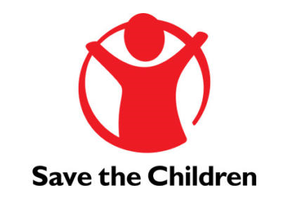Comic Relief and Sainsbury’s have developed a “plant-based” Red Nose in a bid to reduce the plastic waste generated by its flagship fundraising appeal.
The Red Nose has been an iconic symbol of Comic Relief’s fundraising events. But the charity was criticised last year for using plastic to make them due to the harmful impact on the environment.
Now, next year’s nose will be made from bagasse, a natural by-product of sugarcane. There will be 10 different characters available to collect, each representing an aspect of the outdoors.
It took 18 months to develop the plant-based nose. Comic Relief and Sainsbury’s hope to eventually produce a Red Nose that is fully compostable.
The Red Nose is sold in Sainsbury’s and has been part of the charity’s fundraising efforts since 1988, with sales raising £70m.
Environmentalists welcomed the move, but encouraged Comic Relief to go further.
Tony Bosworth, plastics campaigner at Friends of the Earth, said: “Everyone knows how extensive plastic pollution is and what it does to wildlife, so it’s good that the famous Comic Relief nose will be plastic free. We need alternative and better solutions to avoid single-use plastic everywhere and this should be led by industry and government.
“We look forward to Comic Relief making sure that all of its materials are environmentally friendly.”
Pressure from school children
Pupils from Fourlanesend Community Primary School in Cornwall were among the first to raise their concerns about the sustainability of plastic noses in 2019.
In January that year the school wrote to Comic Relief to say that it would not be ordering any Red Noses.
The letter said: “Following Sir David Attenborough’s BBC documentary and the subsequent ‘Blue Planet Effect’ last year, which saw such a dramatic increase in public awareness and outrage about plastic pollution, we find it surprising that the BBC is still marketing red plastic foam noses.
“They are essentially just another form of single use plastic, which will probably be worn for one day only before ending up in landfill. Even worse, they could end up as litter in the environment.”
Comic Relief said this encouraged it to speed up its efforts to develop an alternative Red Nose.
Pupils from the school were some of the first to hear about the new noses and took part in a virtual discussion with representatives from Comic Relief earlier this week.
Rebecca Norton, head teacher at Fourlanesend Community Primary School, said: “The email pinged into my inbox and there it was, Comic Relief actually asking the school if we could support them in their plastic-free Nose announcement. I was amazed, I just couldn’t believe they’d taken it on, that they’d made plastic-free Noses!
“The children are so delighted to know that they’ve been listened to, and that they’ve played a role and were a driving force in this change.”
Richard Curtis, Comic Relief co-founder, said: “We now have these brilliant new plastic-free Noses that we’re really proud of as we take an incredibly strong step forwards on our sustainability journey and continue to change lives in the UK and around the world.
“The children really brought their A-game today, asking us about where the Noses were made, if we’ve thought of making a Red Nose Day mask, if there is still plastic in the rest our merchandise range, and even if we like wearing the Noses! I’m thankful we had all the answers as they know their stuff and we really wanted to do their questions justice.”
Related articles












